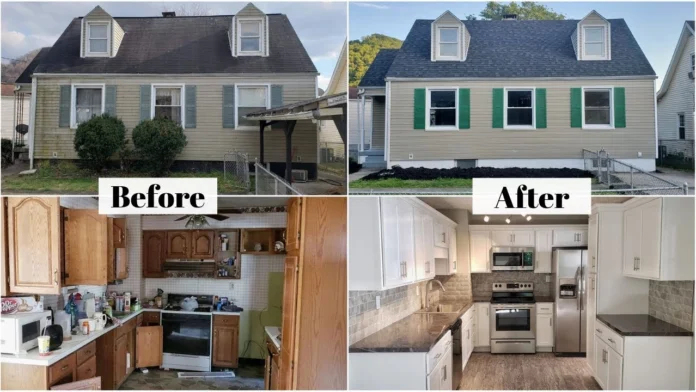Flipping houses can be an exciting and profitable venture, but it also comes with its fair share of challenges. To turn a fixer-upper into a money-making property, you need strategy, planning, and the right execution. Whether you’re a beginner or an experienced investor, these essential tips will help you maximize profits and avoid costly mistakes in your house flipping journey.
1. Find the Right Property
The foundation of a successful flip starts with selecting the right house. Look for properties that are undervalued but have strong resale potential. Consider these factors:
- Location: A home in a desirable neighborhood will sell faster and at a higher price.
- Market Trends: Research the local housing market to ensure demand is strong.
- Repairs Needed: Avoid homes with excessive structural issues unless you have experience handling major renovations.
The ideal flip property is one that needs mostly cosmetic improvements rather than major structural repairs, as these are quicker and less expensive to fix.
2. Do the Math Before Buying
Flipping is all about numbers. If you don’t calculate costs accurately, you could end up losing money instead of making a profit. Follow the 70% rule:
- Estimate the property’s After Repair Value (ARV)—the price it can sell for after renovations.
- Multiply ARV by 70% to determine the maximum price you should pay for the home, including renovation costs.
For example, if a house’s ARV is $300,000, you should not spend more than $210,000 on the purchase and renovations combined.
Factor in hidden costs such as:
- Closing costs
- Property taxes
- Loan interest (if financing the flip)
- Realtor commissions
- Unexpected repairs
3. Secure Reliable Financing
Unless you’re paying cash, you’ll need a solid financing plan. Common options include:
- Hard Money Loans: Short-term, high-interest loans designed for house flipping.
- Private Lenders: Investors willing to fund your flip for a return.
- Home Equity Line of Credit (HELOC): Using the equity in another property you own.
Choosing the right financing ensures you can move quickly on a deal and avoid unnecessary delays.
4. Renovate Smartly and Within Budget
One of the biggest pitfalls of house flipping is over-renovating. While you want the home to be attractive, adding unnecessary luxury features can eat into your profits. Focus on cost-effective, high-impact upgrades, such as:
- Curb Appeal: A fresh coat of paint, well-maintained landscaping, and a professional entry door installation in Boise can create a striking first impression.
- Kitchen & Bathrooms: Minor updates like painting cabinets, replacing countertops, and upgrading fixtures can add significant value.
- Floors & Paint: New flooring and a neutral paint color make the house feel fresh and modern.
Always stick to your budget, and plan for the unexpected—it’s common for surprises to arise once renovations begin.
5. Build a Reliable Team
Unless you’re a skilled contractor, flipping a house is not a solo endeavor. Surround yourself with professionals who can help make the process smoother and more efficient:
- Real Estate Agent: Helps you find great deals and sell the home quickly.
- Contractor: Manages renovations and ensures work is done correctly.
- Inspector: Identifies potential problems before you buy.
- Accountant: Helps track expenses and maximize tax benefits.
Having a dependable team in place can save you time, money, and stress.
6. Price It Right and Sell Quickly
After renovations are complete, it’s time to sell—but pricing too high can cause delays. An overpriced home will sit on the market, racking up holding costs like mortgage payments, utilities, and insurance. Work with a real estate agent to:
- Analyze Comparable Sales (Comps): Price the home competitively based on similar properties in the area.
- Stage the Home: Professionally staged homes sell faster and for higher prices.
- Market Aggressively: Use online listings, open houses, and social media to attract buyers.
The goal is to sell quickly to maximize your profits and move on to the next flip.
7. Learn from Every Flip
Even the most successful flippers make mistakes, but what sets them apart is their ability to learn from them. After each project, analyze:
- What went well? Did you stay on budget? Did the home sell quickly?
- What could be improved? Were there unexpected costs? Did you spend too much on renovations?
By continuously improving your process, you’ll become more efficient and profitable with each house you flip.
Final Thoughts
Flipping houses can be a rewarding way to build wealth, but success depends on careful planning, smart investing, and disciplined execution. By choosing the right property, managing renovations wisely, and selling at the right price, you can turn a run-down house into a lucrative investment. With experience and persistence, house flipping can become a highly profitable business venture.
Are you ready to take the plunge into house flipping? Start small, do your research, and take action—your first successful flip might be just around the corner!

